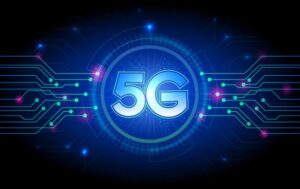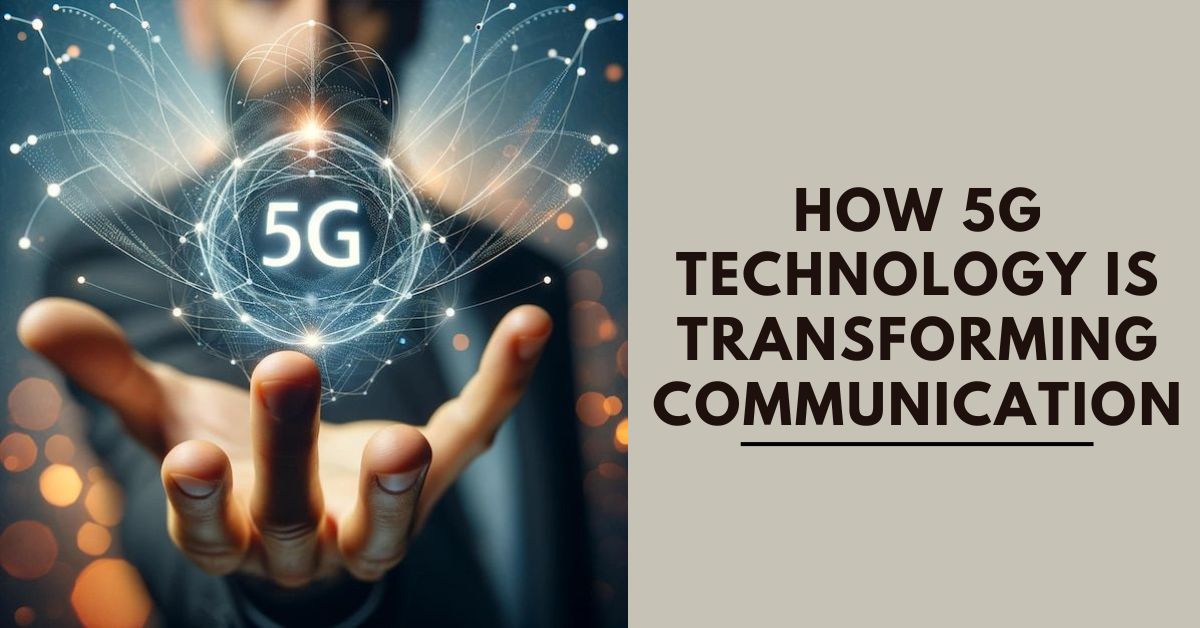How 5G Technology Is Transforming Communication
Technology is evolving rapidly, and 5G is one of the biggest advancements in communication. It is faster, more efficient, and improves connectivity like never before. This technology is changing the way people and businesses interact. In this blog, we will explore how 5G is transforming communication and its impact on different industries.

What Is 5G Technology?
5G stands for the fifth generation of wireless technology. It provides faster internet speeds, lower latency, and more reliable connections. Compared to 4G, 5G offers a much-improved experience for users. It enables faster downloads, better video streaming, and supports more connected devices at the same time.
Key Benefits of 5G Technology
1. Faster Internet Speed
5G offers internet speeds up to 100 times faster than 4G. This means users can download large files, stream high-definition videos, and play online games without interruptions.
2. Low Latency
Latency is the delay between sending and receiving data. 5G reduces latency to as low as 1 millisecond. This is essential for real-time applications like video calls, gaming, and autonomous vehicles.
3. Increased Connectivity
5G allows more devices to connect simultaneously without affecting performance. This is beneficial for smart cities, IoT (Internet of Things), and industries that rely on multiple connected devices.
4. Enhanced Reliability
With improved network stability, users experience fewer dropped connections. This ensures seamless communication and better performance for businesses and individuals.
5. Energy Efficiency
5G technology is designed to use less power while delivering higher efficiency. This helps in reducing energy consumption and supports sustainability.
How 5G Is Transforming Communication
1. Improved Mobile Experience
With faster speeds and lower latency, mobile users can enjoy a seamless experience. Video calls are clearer, apps load instantly, and browsing the internet is quicker.
2. Revolutionizing Business Communication
Businesses rely on communication for collaboration and operations. 5G enables high-quality video conferencing, faster file sharing, and remote working with ease. It also helps companies adopt cloud computing efficiently.
3. Advancing Healthcare Services
The healthcare sector is benefiting from 5G with telemedicine and remote surgeries. Doctors can consult patients through high-quality video calls. Surgeons can also perform operations using robotic technology with real-time precision.
4. Enhancing IoT and Smart Devices
The Internet of Things (IoT) connects various smart devices like home automation systems, security cameras, and wearable gadgets. 5G ensures these devices work faster and communicate efficiently.
5. Supporting Autonomous Vehicles
Self-driving cars rely on real-time data for navigation. 5G provides the necessary speed and low latency for vehicle-to-vehicle communication, improving road safety and traffic management.
6. Boosting Entertainment and Gaming
Online gaming and video streaming services require fast internet. 5G ensures smoother gameplay, better graphics, and no buffering. Streaming platforms can deliver 4K and 8K videos without delays.
7. Advancing Augmented and Virtual Reality
Augmented Reality (AR) and Virtual Reality (VR) are transforming industries like education, training, and tourism. 5G enhances these technologies by offering real-time, immersive experiences.
8. Improving Public Safety
Emergency services, such as police and fire departments, can use 5G for faster response times. Real-time data transmission helps authorities make better decisions in critical situations.
Challenges of 5G Implementation
Although 5G has many benefits, there are some challenges:
- High Infrastructure Costs: Deploying 5G networks requires new towers and equipment, which is expensive.
- Limited Coverage: 5G is not yet available everywhere, especially in rural areas.
- Security Concerns: More connected devices increase the risk of cyber threats.
- Device Compatibility: Older devices do not support 5G, requiring users to upgrade.
Future of 5G Technology
The future of 5G looks promising. More countries are adopting this technology, and advancements will continue to improve connectivity. Industries like smart cities, AI, and robotics will benefit greatly. As 5G evolves, we can expect even faster speeds, better security, and wider coverage.
Conclusion
5G technology is transforming communication by offering faster speeds, low latency, and increased connectivity. It is revolutionizing industries like healthcare, entertainment, business, and transportation. While there are challenges, the benefits outweigh them. The future of 5G is exciting, and it will continue to shape the way we communicate and interact with technology.
Also Read:
The best budget-friendly smartwatches for 2025
